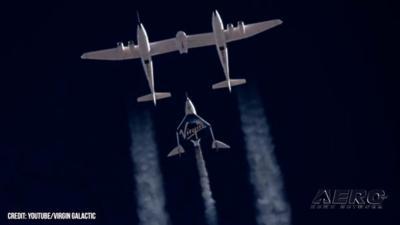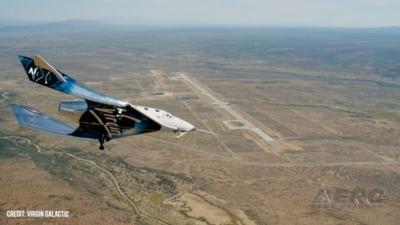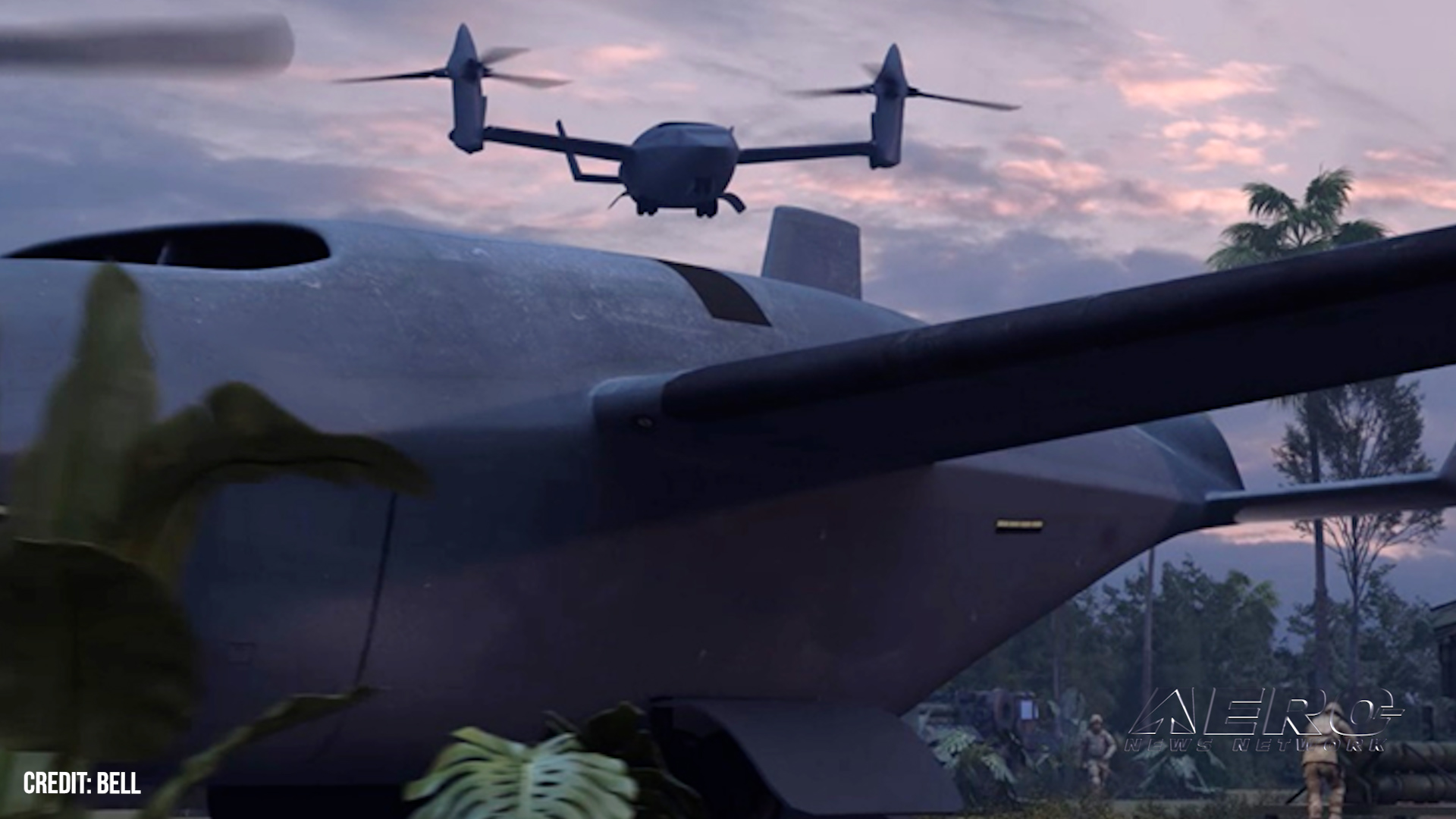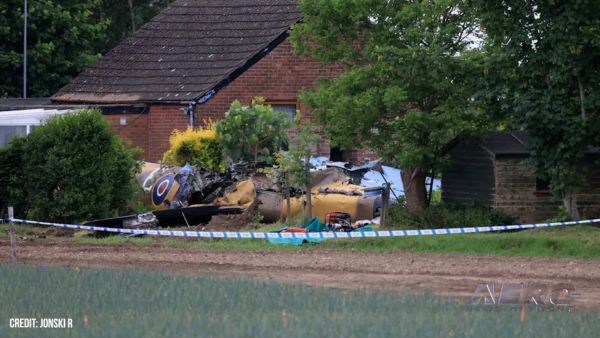Strength in Unity
On 26 April 2023, Virgin Galactic—the California-based spaceflight subsidiary of archetypal billionaire-cool-guy-knight Sir Richard Branson’s Virgin Group—resumed flight-testing of its VSS Unity spacecraft.

The non-powered, gliding test-flight occasioned the first instance in which Unity had flown independently of a carrier aircraft since July 2021, when the unique vessel rocketed Branson and Virgin Galactic employees Beth Moses, Sirisha Bandla, and Colin Bennett to an altitude of approximately 278,900-feet—albeit not without consequence.
On 17 May 2023, Virgin Galactic announced it would presently attempt a full-on suborbital flight of its Unity spacecraft. Subject undertaking, dubbed Unity 25, occasions the company’s fifth extra-atmospheric junket and is slated to launch from Virgin Galactic’s Spaceport America facility in New Mexico on 25 May. By way of objective, the mission seeks to convey astronauts Luke Mays, Christopher Huie, Jamila Gilbert, and Beth Moses spaceward for purpose of conducting a final assessment of the full Virgin Galactic spaceflight and astronaut experience prior to the commencement of commercial services in late-June 2023.
The Unity vessel will be borne aloft by Virgin Mother Ship (VMS) Eve, a Burt Rutan-designed, Scaled-Composites-built, four-engined, twin-fuselage, twin-empennage behemoth named for Evette Branson, Sir Richard’s mother. Upon reaching a predetermined altitude, Eve will release Unity from an underwing hardpoint between the larger aircraft’s twin-fuselages, thereby allowing the spacecraft’s crew to ignite its rocket engine—a clever contraption that runs on a volatile cocktail of hydroxyl-terminated polybutadiene (HTPB) and liquid nitrous oxide (N20)—and blast upwards to a target altitude of approximately 262,000-feet.
Though not technically beyond the Karman Line—the one-hundred-kilometer (329,000-foot) terminus by which Earth’s atmosphere and space are delineated—the altitude to which Unity will venture is sufficiently high to afford the craft’s occupants a few minutes of weightlessness and uniquely spectacular views of the planet.
In 2004, Branson somewhat prematurely declared Virgin Galactic’s first paying passengers would journey spaceward in 2007. Fourteen years thereafter, Virgin Galactic made the aforementioned 2021 inaugural flight, which, unbeknownst to many, drifted dangerously off-course, compelling the mission’s pilots to feats of improvisation by which an embarrassing emergency landing was precluded—just—and Branson et al. returned to Earth safely, if not a bit shaken.
An FAA investigation of the narrowly-averted debacle turned up a structural weakness in Eve’s wing, near the point at which Voyager (Unity’s former designation) anchored to the mothership. The findings prompted the FAA to ground Virgin Galactic flight operations pending resolution of Eve’s wing woes. The process of reengineering, refabrication, and retrofit spanned 18 months.
In July 2022, Virgin Galactic announced the signing of a long-term lease for a new final-assembly manufacturing facility for its next-generation Delta class spaceships, which are slated to serve as the company’s workhorse vehicle for near-future spaceflight operations. The first Delta class ships are expected—perhaps over-optimistically—to commence revenue-generating payload flights in late 2025 before progressing to passenger-carrying space tourism flights in 2026.

In the near-term, Virgin Galactic aims to fly Unity once a month, a tempo dramatically adagio of profitability but enough, the company’s hopes, to sustain investors and cash-flow until the debut of the Delta class ships—which Virgin Galactic asserts will be capable of undertaking weekly revenue spaceflights.
Provisioned with a fleet of Delta class ships, Branson and his faithful believe the company can maintain a profitable cadence of four-hundred yearly space missions.
Passenger flights aboard Virgin Galactic’s Delta class are expected to sell for an eye-watering $450,000 per-seat. Customers will be required to make an initial deposit of $150,000—about $25,000 of which is nonrefundable—to hold their respective spots.
Notwithstanding Branson’s confidence in his company’s business model, investors have grown increasingly skeptical of Virgin Galactic’s profit-turning potential. In 2021, following Branson’s publicity-stunt flight, the publicly-traded company’s stock shot to $55.91 per-share. In 2022, however, after flying no customers to space, the company reported a net loss of $500-million.
On 17 May 2023, Virgin Galactic stock was trading at $4.50 per-share.
 USCG MH-60 To The Rescue (Again) -- Rescues 4 Boaters
USCG MH-60 To The Rescue (Again) -- Rescues 4 Boaters Gray Eagle Order Placed for Army National Guard
Gray Eagle Order Placed for Army National Guard Aero-Biz Survival 101 (1120a): Expert Ideas To Help You Through Tough Times
Aero-Biz Survival 101 (1120a): Expert Ideas To Help You Through Tough Times Airborne 06.03.24: Rotax 915/916 SB, Starship 4 Ready?, B-17 Mementos
Airborne 06.03.24: Rotax 915/916 SB, Starship 4 Ready?, B-17 Mementos Mid-Continent Instruments and Avionics Mourns Former Leader
Mid-Continent Instruments and Avionics Mourns Former Leader




